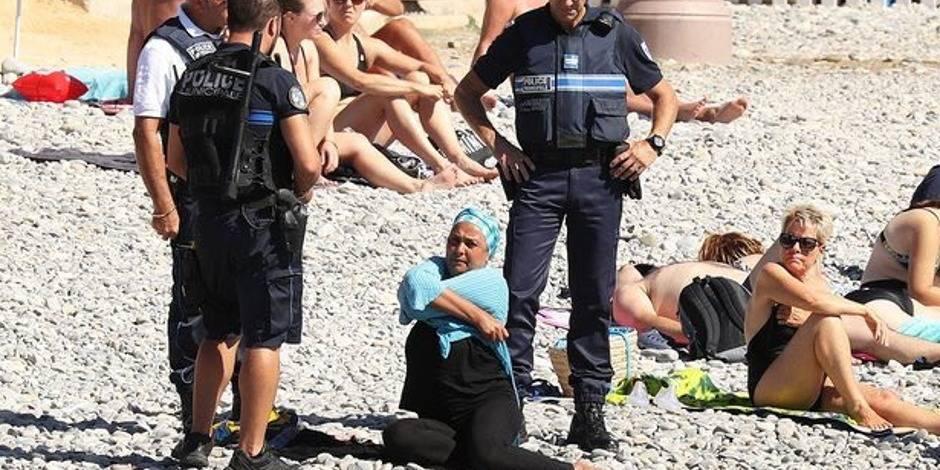Morocco-DRC: tea in Rabat with the Mobutu
The widow of the former strongman of Zaire has lived with some of his children and grandchildren in the Cherifian capital since 1997. Exclusive meeting with a very discreet family.
Friday August 20, 2021. On this public holiday, the streets of Rabat are almost deserted: the kingdom is celebrating the anniversary of the "revolution of the king and the people", which marks the uprising of Moroccans against the forced exile of Mohammed V in Madagascar in 1953. And the residential neighborhood of the Ambassadors is no exception.
Along the wide paths lined with palm trees, usually animated by the ballet of cars of ministers, generals and other senior state officials, time seems to have stopped. The silence is barely interrupted, here and there, by the hissing of a garden hose or the rustling of the door of one of the sentry boxes of the guards in charge of the security of the opulent villas.
One of them, similar in its neo-Moorish style to all the others, has been home to Bobi Ladawa, Mobutu's widow, and part of the descendants of the former Zairian president for a quarter of a century. Her twin sister Kosia also lives in Rabat, but was in Europe at the time of our visit.
Since her hasty departure from Kinshasa on May 16, 1997, after her husband was overthrown by Kabila, Bobi Ladawa has been very discreet. This is the first time that she has agreed to receive a journalist to talk about her Moroccan life.
The “Mama” of all the Rbatis
Here, everyone knows her. “I have lived in Rabat for twenty-four years. This is where I have my bearings and my habits. The merchants with whom I do my shopping put aside my favorite products. Everyone calls me "Mama", because they have understood that you should not say "Madame" to me. Me, I'm not European, I'm African, Congolese. »
However, the codes of the Moroccan elite obviously have no more secrets for her: indoor clothing embroidered with sfifa, children and grandchildren educated at the Descartes high school or at the American School, villa arranged like a riyad, with patio and fountain in its center, and stays all around – traditional Moroccan living room, European living room, dining room.
It is moreover in the large traditional Moroccan living room, a long room with walls covered with zelliges, with benches arranged in a circle, that the body of the deceased Marshal was presented to those who wished to pay him a last tribute before his death. burial in the Christian cemetery of Rabat, September 13, 1997, four months after his overthrow.
“The house was always full for forty days and forty nights. Friends came from everywhere to support us, Moroccans but also Africans and Europeans. Our neighbors were very understanding because there were always a lot of people, religious songs, vigils… In our misfortune, we were never alone,” recalls Ngawali, the marshal’s daughter.
A point of view shared by Nzanga Mobutu, the eldest son of Bobi Ladawa, who arrived in Morocco at the age of 27: “Of course, there is sadness and the lack of our father. But the warmth of the people and their support made up for it a bit. With Moroccans, and not just the authorities, you really feel like family. Everything is done to make you feel at home. In times of joy and sorrow, Moroccans have never hesitated to be by our side. Despite our religious differences, we share the same values. At the time of death, people from here spontaneously came to visit us, and pray with us while reciting Muslim funeral songs to accompany the soul of the deceased. Morocco has been a refuge and a blessing on our journey. »
And it is in this same house that the family has lived since their arrival in the kingdom following the events that led them to flee Zaire... A period over which neither Mama Bobi Ladawa nor her children wish to dwell. " I'll never forget. I don't want to talk about it because it makes me relive terrible times for our family. I had a lot of trouble getting on the plane to Lomé, Togo, before having to go back to Morocco,” explains Bobi Ladawa.

Nzanga remembers down to the smallest detail the day he arrived in the kingdom of Hassan II, a long-time friend of the marshal. “It was exactly May 23, 1997. We had landed at Rabat-Salé airport from Lomé. I can still see the secure convoy of cars crossing the capital under the protection of the Moroccan authorities towards Skhirat, at the L'Amphitrite hotel, where we stayed until we moved into this house…”
Without resentment or resentment
But if the widow of the marshal has not forgotten anything, she has been able to remain positive and affirms not to harbor resentment. “My pains are things that I prefer to keep to myself,” she confides. I have no accounts to settle with anyone, my heart is at peace. Of course, I was shocked by comments made about my husband. But I don't blame anyone, he himself kept telling us to stay above the fray, above those who gossip and plot. Isn't it said that the tallest tree is always exposed to the wind? »
In the meantime, Mama Bobi Ladawa says she is very happy with her life in Morocco. “I really feel at home. Comfortable and safe. If I had stayed in the country after the death of my husband, I don't know what would have happened to me. By coming here, I was able to have a new life, my existence on Earth was extended and I am still here, at 76 years old, ”she breathes between two bites of petit fours from Maymana, caterer-pastry chef highly prized by good rbatie society.
And to add: "In the midst of all the hardships that we have gone through, in particular during the last months in the Congo, where we no longer knew who was with us and who was against us, where anyone could take to us at any time, I felt a great relief in settling in Morocco. »
His children share the same sentiment. "For nothing in the world I will give up my life in Morocco," says Ngawali, daughter of the marshal. Moreover, when the Covid pandemic started, I was traveling abroad. As soon as the borders started to close, I had only one obsession: to return to Rabat because this is where I feel at home. “It is in these moments that we understand how important it is to have a clear figure of authority, a unifying head of state like King Mohammed VI,” insists Bobi Ladawa, who did not leave of Morocco since the beginning of the pandemic and who considers herself very lucky to be able to lead her second life there.
Hassan II, un père de substitution
A new start made possible thanks to King Hassan II, who supported his longtime friend when all his allies turned their backs on him. “We will never forget what King Hassan II did for us. We have always heard our father speak of him with great respect. In particular for his support during the Shaba wars.
And when we arrived from the Congo, when he received my father and me, he was extraordinarily welcoming and caring, as only a member of your family can be. He asked me to address him as I would with an uncle, recalls Nzanga Mobutu, who sees in the late monarch a father figure. He and my dad were only a year apart. And when my father died, he received us, my older brother Manda and me, and knew how to find the right words to ease our pain. »
Nzanga even decided, together with his wife Catherine Bemba [sister of Jean-Pierre Bemba, president of the Mouvement de liberation du Congo, editor's note], to call his youngest son Sese Hassan, in homage "to my father Sese Seko Mobutu and to His Majesty Hassan II, peace to their souls”.
To the recognition, his sister Ngawali adds admiration: “Long before 1997, I was already very admiring of the brilliant head of state, visionary that he was. Of its culture, its erudition and its verve. His media appearances should be shown to all political science students. But this second father will in turn disappear in July 1999.
An event experienced as a shock by the family. Nzanga, who was then attending a wedding in Italy with his wife, immediately returned to Morocco to attend the funeral, with his brothers, Manda, Giala and Ndokula: “It was like losing my father a second time. “Thanks to King Hassan II and his son, His Majesty Mohammed VI, we have been leading a serene and peaceful life for twenty-four years. It is very difficult to find the words to express our gratitude…”, insists Mama.
Liens historiques
This benevolence at the top of the state is found among the Moroccan elites. A story of friendship that began with the sending of military contingents in the 1960s to support the independent Congo in the face of rebellions, and which continued later in 1976-1978 with the Shaba war.
"The late General Benhamou Kettani, who had been in the Second World War, was a tutelary figure and no doubt a source of inspiration for our father who had been very marked by his attitude, in 1960, faced with the mutineers of Matadi to whom he had made these comments: “Congolese soldiers, I ask you to silence the hatred on which nothing is built”, says Nzanga, who confides to us that he is working on a book dedicated to his father.
Later, in the 1970s, these ties would continue with General Abdelkader Loubaris (then colonel-major), who led the Moroccan Monuc troops who came to pacify Katanga. “We often saw him when he was in Zaire, but also when we came to visit Morocco. He was much more than a friend of the family, he was almost an 'uncle',” recalls Nzanga. For her part, Ngawali, a former diplomatic adviser to her father, had forged ties of friendship with Ahmed Snoussi, Morocco's former ambassador to the UN.
“We met at the United Nations in the early 1990s during meetings on the conflict in Zaire. He was a very cultivated man, of great finesse, with whom I really liked to exchange, ”she recalls. “When I came to live in Morocco, I continued to visit him regularly. And he himself came to attend a requiem mass in memory of dad. »
These masses, celebrated at the cathedral of Rabat on September 7 of each year, the anniversary of the death of the man whom many nicknamed the "king of Zaire", often bring together the elite of Moroccan society. "Our door is always open to those who wish to honor his memory...", specifies Ngawali, who is working with the rest of the family to set up a Mobutu Foundation.
Long awaited by supporters of the late Marshal, this Foundation will have several missions, such as the organization of conferences and exhibitions, the publishing of books, the structuring of archives, etc.
“Sometimes it takes several generations before you can take a fair and peaceful look at things. Almost a quarter of a century has passed since the tragic events that pushed my father out of power. The time has come to shed light on certain aspects,” says Ngawali. “Marshal Mobutu in his own way embodied a unifying figure for many Zairians. Overall, even his opponents agree that he has created unity, ”said Nganza.
Vers un rapatriement de la dépouille ?
Will this rehabilitation work be accompanied by the repatriation of the remains of the former president, demanded by Congolese personalities? The family does not rule it out. “We have been contacted several times about this. It is a decision that must be taken collectively. When the time comes, the family will express themselves with serenity, ”insists Mama.
“Out of respect for our late father, it is important that the repatriation of his remains can take place in an atmosphere of national reconciliation and peace,” adds Ngawali. "He's not going to stay here forever, he's going to come back home one day," says Mama. But the preconditions for his return must be met. “And to insist:” All the conditions “, without saying more.
The widow of the man who ruled the Congo for more than thirty-two years continues to spend quiet days in Rabat, concerned above all about her home, the well-being of her descendants and the unity of the family.
“I am a very invested grandmother. Today, I have the opportunity to spend time with my children and grandchildren. I go to see them as soon as I can, even those who are abroad. When my grandson Nyiwa, who lived in the United States, graduated from high school, I was very proud and very happy to be able to attend the ceremony. These are things that I couldn't do when I was first lady. »







